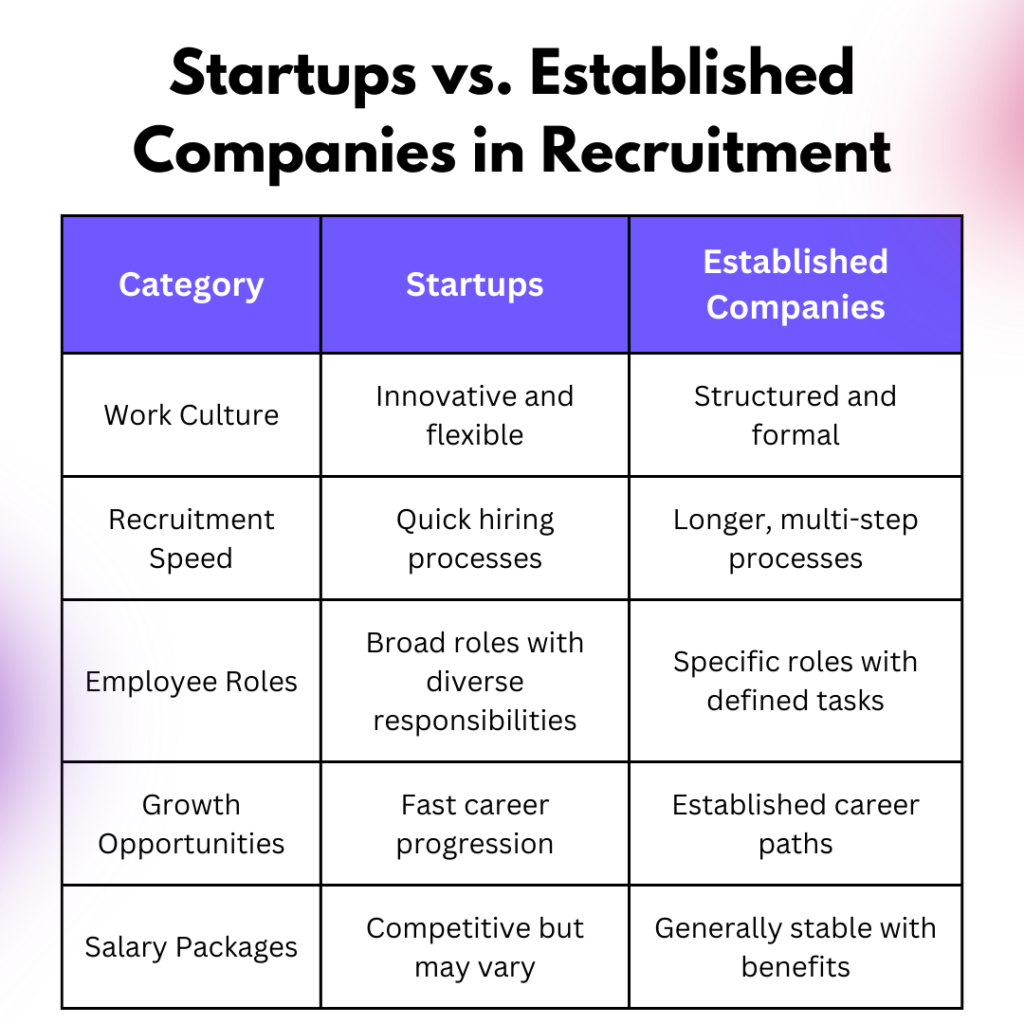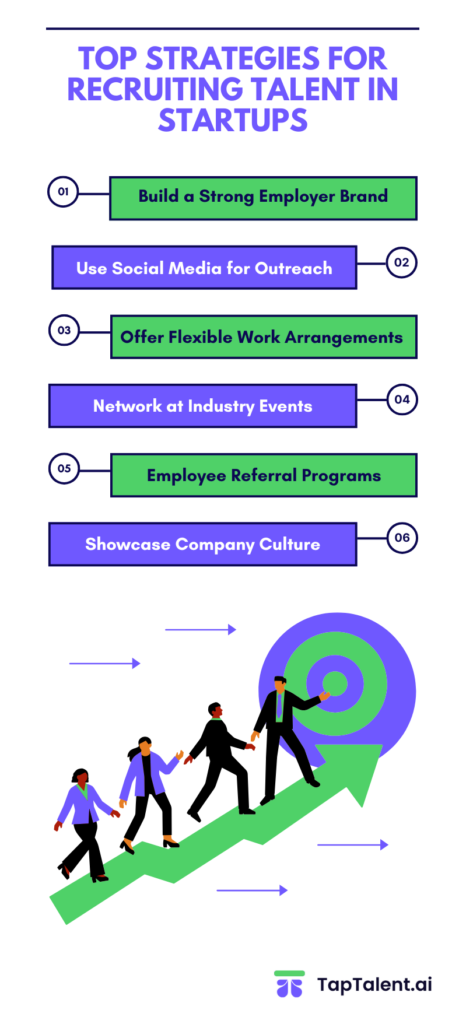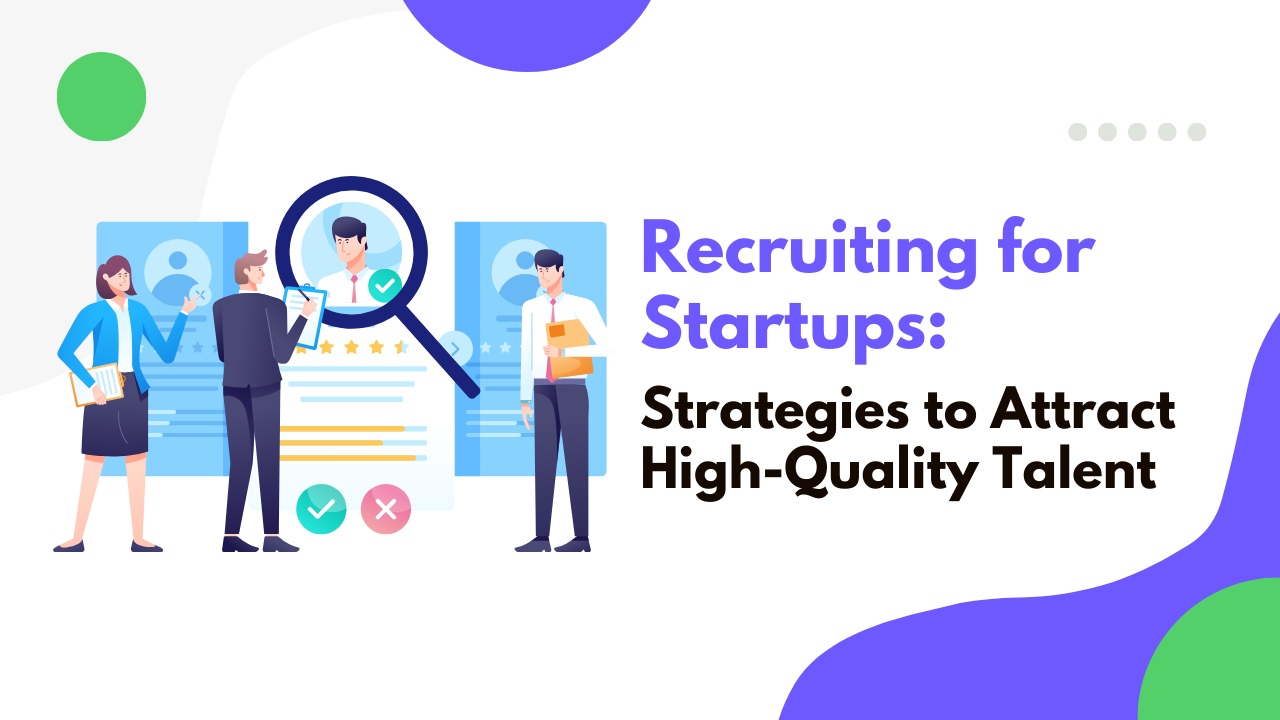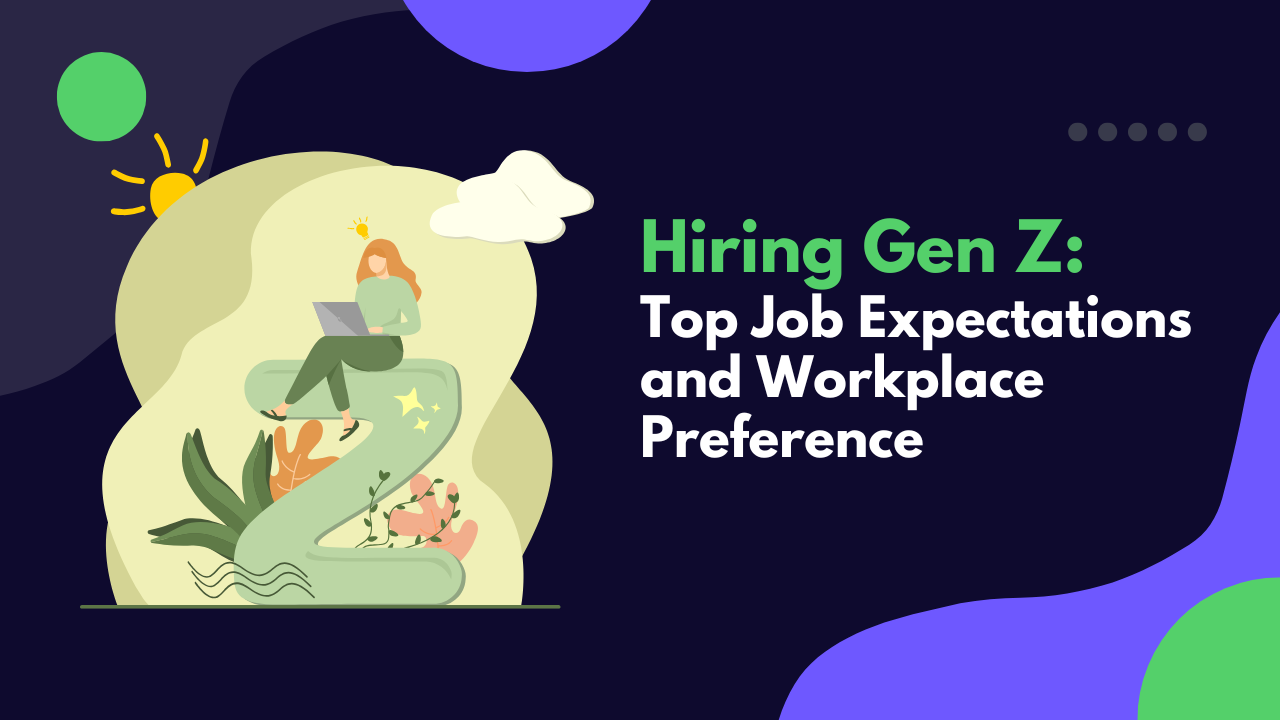Recruiting for startups can feel like searching for a unicorn in a haystack. As a founder or hiring manager, you know that your team is the backbone of your company’s success. But how do you compete with established corporations and their deep pockets when it comes to recruiting high-quality candidates?
Fear not, intrepid entrepreneur! This blog post is your roadmap to mastering the art of startup recruitment. We’ll dive into proven strategies that will help you not only attract but also retain the best talent in your industry. From defining your ideal candidate and building a compelling employer brand to leveraging cutting-edge technology like AI-powered talent matching, we’ve got you covered.
Get ready to transform your hiring process and build a dream team that will propel your startup to new heights. Whether you’re a seasoned founder or just starting out, these insights will help you navigate the unique challenges of startup recruitment and come out on top. Let’s explore how you can turn your startup into a talent magnet and secure the game-changing employees your company needs to thrive.

Defining Your Ideal Candidate
In the competitive landscape of startup recruitment, knowing precisely who you’re looking for is a game-changer. Defining your ideal candidate allows you to focus your efforts on individuals who will contribute significantly to your startup’s success and mesh well with your team. Crafting detailed candidate personas is a crucial first step in this process.
Creating Candidate Personas:
Develop a comprehensive profile of the perfect hire by taking into account key factors such as experience, skills, and personal attributes. Start by considering the specific roles you need to fill. For instance, if you’re looking for a software developer, you might create a persona that emphasizes proficiency in specific programming languages and agile project management. Remember to include softer skills, such as adaptability and problem-solving, which are essential for thriving in a startup environment.
Essential Skills and Qualities for Startup Employees:
Unlike large corporations where roles can be rigid, startups require employees who wear many hats. Look for self-starters who are not only skilled in their domain but can also pivot and handle multiple tasks. These individuals should bring a mix of creativity and innovation to the table, along with a drive that aligns with your startup’s vision and culture. According to a study by the University of Washington, startups often benefit from hiring employees with a high tolerance for ambiguity, as these individuals are typically more flexible and resourceful in dynamic environments.
Balancing Technical Expertise and Cultural Fit:
Finding the right balance between technical skills and cultural fit can make or break your team dynamics. High technical competence is necessary, but it’s equally important to ensure candidates resonate with your values and work environment.
For example, a developer with impressive coding abilities may not thrive without a collaborative spirit or a passion for your products and services. Consider using behavioral interview questions to gauge how potential hires might integrate into your company culture. This not only helps in building a harmonious work environment but also results in better retention rates.
Transitioning from the task of defining your ideal candidate, the next step involves showcasing what makes your startup an attractive place to work. In the following section, we’ll explore strategies to build and enhance your employer brand, ensuring it reflects the vibrant and dynamic culture that embodies your startup. By doing so, you’ll not only attract potential candidates but also set the foundation for a strong, cohesive team.
Building a Compelling Employer Brand
As startups compete fiercely for top talent, establishing a compelling employer brand is crucial for standing out in the crowded marketplace. Your employer brand is essentially the identity of your startup as a workplace, encapsulating its culture, values, and mission. Think of it as the outward display of your company’s personality, drawing potential candidates much like a vibrant storefront attracts customers.
Showcasing Startup Culture and Values
At the heart of an enticing employer brand is a vibrant startup culture. This is more than just perks like free snacks or casual Fridays—it’s about creating an environment where innovation thrives, and employees feel valued. When recruiting for startups, clearly articulate your mission and values. Are you committed to sustainability? Perhaps innovation is at the core of your operations. Whatever it is, make sure these values are prominent in every touchpoint a potential candidate might encounter, from your website to social media posts. This ensures that your messaging is consistent and compelling.
Consider using real-life examples or case studies where your company’s values have been put into action. For instance, a startup focused on sustainability might highlight their efforts to reduce carbon emissions through energy-efficient office practices. Such stories not only humanize your brand but also resonate with like-minded individuals seeking purposeful work.
Leveraging Social Media and Content Marketing
In today’s digital age, social media is an indispensable tool for crafting and promoting your employer brand. Platforms like LinkedIn, Twitter, and Instagram offer unique opportunities to showcase your startup’s culture and achievements. Share behind-the-scenes content that highlights your team’s camaraderie or innovative projects, painting a picture of what it’s like to work with you.
Content marketing also plays a pivotal role. By publishing articles, blogs, or videos that emphasize your industry expertise and workplace culture, you establish your startup as a thought leader. For instance, sharing insights on recent projects or innovative solutions positions your company as not only a workplace but a pioneer in your field. This approach attracts professionals who value learning and growth, aligning perfectly with startup dynamics.
Employee Testimonials and Success Stories
One of the most powerful endorsements of your employer brand comes from your current employees. Their positive experiences serve as authentic testimonials that can sway potential candidates. Encourage employees to share their stories through blog posts or short video testimonials. These narratives provide a genuine glimpse into your work environment and help prospective hires envision themselves as part of your team.
Success stories are equally impactful. Highlighting employees who have grown within the company or innovative projects that have led to personal achievements illustrates a culture of growth and opportunity. For instance, sharing how a junior developer quickly scaled to a lead role due to innovative contributions offers a tangible example of career progression.
Success stories showcasing growth within your startup can significantly boost recruiting for startups, offering prospective hires a tangible example of the opportunities available.
By effectively building and promoting your employer brand, you create an inviting image of your startup, making recruiting for startups smoother and more focused on individuals aligned with your values and goals. To learn more, check our blog on 10 Key Employer Branding Metrics to Track in 2024.
Next, we’ll explore optimizing the recruitment process, ensuring that once candidates are attracted to your brand, their journey through the recruitment pipeline is seamless and efficient.

Optimizing the Recruitment Process
After meticulously building an employer brand, it’s vital to create a recruitment process that matches this appealing front. Recruiting for startups can be tough and time consuming, therefore, optimizing your recruitment funnel is really important and beneficial. It ensures top-tier candidates not only notice your startup but also have a seamless journey from application to onboarding. Consider this part of the process as turning interest into commitment.
Streamlining Application Procedures
An overly complex application process can deter even the most enthusiastic candidates. Keep forms concise and only require essential information at this stage. Simplifying the submission of applications benefits not only candidates but also recruiters, who can more efficiently manage and review applications.
-
- Automation Tools: Use software to automate routine tasks, such as sending acknowledgments and scheduling interviews, to reduce workload and improve efficiency.
-
- Mobile-Friendly Applications: Ensure applications can be easily completed on mobile devices, considering today’s candidates often engage with job postings on their smartphones.
- Mobile-Friendly Applications: Ensure applications can be easily completed on mobile devices, considering today’s candidates often engage with job postings on their smartphones.
Effective Interview Techniques for Startups
The interview process should reflect your startup’s unique culture and values while effectively identifying the right fit. Consider integrating behavioral interview questions to gauge how candidates have handled situations in past roles. This not only assesses their competencies but also their cultural fit.
-
- Panel Interviews: Having multiple team members participate provides diverse perspectives on the candidate’s fit.
-
- Skills Assessments: Simulations or practical tests can demonstrate how candidates may perform in real-world situations relevant to their roles.
- Skills Assessments: Simulations or practical tests can demonstrate how candidates may perform in real-world situations relevant to their roles.
Offering Competitive Compensation Packages
While startups may not be able to compete with large corporations in terms of salary alone, they can offer appealing alternatives that reflect the startup lifestyle and values.
-
- Equity Options: Offering stock options can attract those interested in benefiting from your startup’s success.
-
- Flexibility and Work-Life Balance: Promoting remote work options or flexible hours can be a significant draw for talent prioritizing work-life balance.
Providing a frictionless path from application to offer is crucial for securing motivated candidates. As we move towards integrating technology further into these processes, the next section will explore leveraging cutting-edge solutions to enhance recruitment effectiveness and candidate satisfaction.
Leveraging Technology in Recruitment
As we transition from optimizing the recruitment process, embracing technological advancements is essential to staying competitive in the startup hiring landscape. In today’s digital age, technology acts as a powerful catalyst for enhancing recruitment strategies, making it a game-changer for startups seeking high-quality talent.
AI-Powered Talent Matching
One of the most transformative tools in recruitment today is AI-powered talent matching. Platforms like TapTalent.ai enable startups to efficiently match candidates to roles based on skills, experience, and cultural fit. Imagine having a digital talent scout that sifts through hundreds of resumes to highlight the best candidates in moments, saving precious time and resources while ensuring a great candidate fit. This technology aids significantly in recruiting for startups, as it helps in identifying not only the technical qualifications but also the personal attributes that align with your company’s culture.
Data-Driven Decision Making
Incorporating data analytics into your hiring process can significantly enhance decision-making. By analyzing data from previous hiring trends and candidate performance, startups can gain insights into which hiring strategies yield the best results. For example, assess past interview success rates to refine your questioning techniques, or use data to identify which candidate sources are the most fruitful. This approach not only helps in fine-tuning recruitment tactics but also ensures you make more informed and unbiased hiring decisions.
Utilizing Recruitment Marketing Tools
Just as startups use marketing to attract customers, recruitment marketing tools help attract talent. These tools are vital for creating targeted campaigns that broadcast your employer brand to the right audience. By leveraging platforms that allow for job advertisements on social media and job boards, you can reach a broader pool of potential candidates who resonate with your startup’s mission and values. Implementing these tools can position your startup as a desirable place to work, similar to how a beacon draws ships safely into harbor.
Conclusion
As we wrap up this exploration of leveraging technology in recruitment, it becomes evident that these innovations democratize access to top talent, empowering startups to compete against established brands. By integrating AI, data analytics, and recruitment marketing tools into your hiring process, you not only enhance efficiency but also elevate your startup’s recruitment outcomes. This is especially important in recruiting for startups, where establishing a strong presence in the talent market can significantly impact growth and success.
Looking towards the future, staying abreast of technological advancements will be crucial. Keep experimenting with new tools and methodologies to continuously refine your recruitment strategy. Remember, the key is not to replace the human touch but to augment it, ensuring every candidate interaction feels personal and impactful. In the realm of recruiting for startups, maintaining this balance will help attract candidates who resonate with your startup’s mission and culture.
In conclusion, as we’ve journeyed from defining the ideal candidate and constructing a compelling employer brand to optimizing the recruitment process and embracing technology, it’s clear that a strategic approach is essential for attracting top talent. By harnessing these strategies, startups can not only navigate the competitive recruitment landscape but also build a high-performing team poised for success. Now, take the leap and explore platforms like TapTalent.ai to revolutionize your hiring strategy today.




